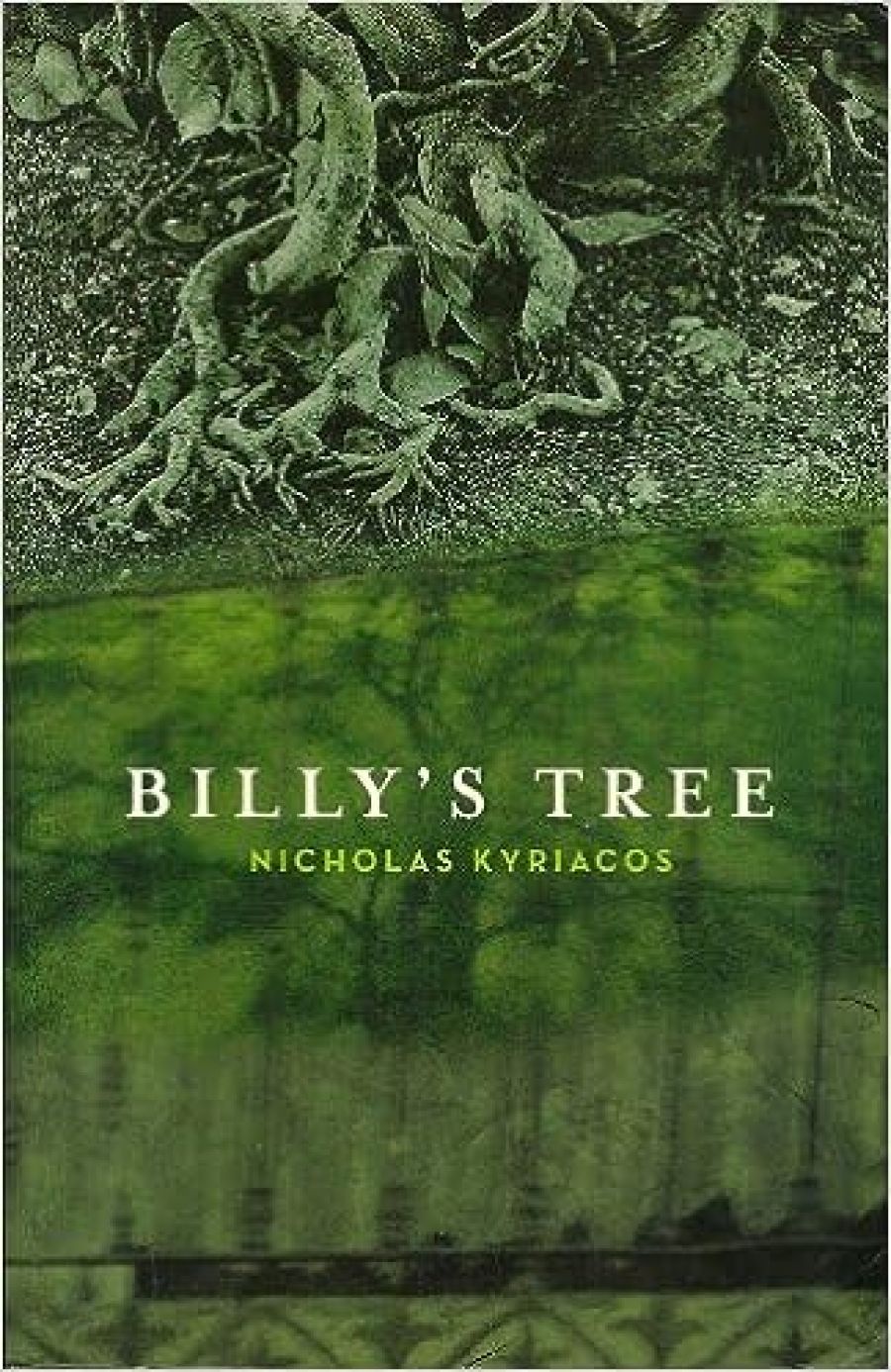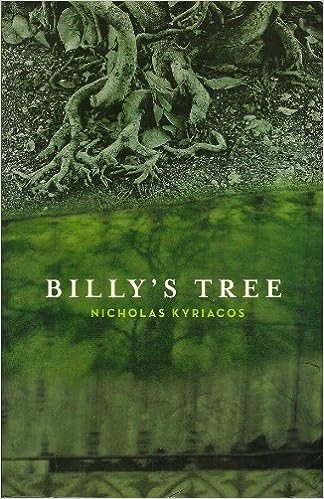
- Free Article: No
- Contents Category: Fiction
- Review Article: Yes
- Article Title: Bouquets of cliché
- Online Only: No
- Custom Highlight Text:
For a while it seemed that the reign of the saga novel, a form once so vital for narrating and propagandising the Australian past, was over. The pugnacious Xavier Herbert was now a wandering shade; Colleen McCullough had removed herself to Norfolk Island; Eleanor Dark and ‘M. Barnard Eldershaw’ belonged to a literary history known to too few. The saga had ceded its cultural place to the television miniseries. That summation held until very recently. Billy’s Tree, Nicholas Kyriacos’s first novel (a creative component of a Doctorate of Creative Arts, although it appears too unguarded to have come from that treadmill), bravely seeks to reinstate not only the saga form but its language and its valuation of what ought to matter to Australians who are alert to the burdens of their history.
- Book 1 Title: Billy's Tree
- Book 1 Biblio: Scribe, $32.95 pb, 320 pp
- Book 1 Cover Small (400 x 600):

- Book 1 Cover (800 x 1200):

Among those whom Kyriacos assembles from the central casting vault of Australian culture are ‘Major’ Bob, a survivor of the Burma Railway, and his father, Francis Ryan, ‘the Lollipop Man’, fervent Catholic, racist and agent of the separation of part-Aboriginal children from their parents. Bob’s best mate is Old Tom O’Flaherty, custodian of the South Sydney Rabbitohs’ past, who is hanging on for the club’s reinstatement and his telegram from the queen. To draw breath for a moment: there is the wise old Greek woman Yaya Zoe to introduce a migrant and multicultural perspective, and to make baklava. In and out of the story, and of Redfern, La Perouse and sundry cruel institutions, are the Butler family. They are indigenous, victimised. One of them is barred effectively by racial prejudice from express-ing his preternatural athletic talents.
This is not the end of Kyriacos’s repertoire. The Greek cafe owner Kookaburra Kon sells out to ‘poofters’ and puts the proceeds into HIH, but at least we are spared the dénouement of that element of the story. The Lebanese man Victor Batrouney (whose father died under the Japanese in World War II, and whose best mate was ‘Major’ Bob) gives up the law, and Redfern, to own a taxi company and live in anguished opulence. He becomes another cog in the ‘community’ (in this account, virtually free of women) that stands by the Rabbitohs. The Aboriginal boy Johnnie Butler witnesses the effects of these allegiances and dreams of a domestic life of his own. Kyriacos – to remind us of his thesis requirements, and of alienation – ventures second-person narration when it comes to Johnnie. It is always ‘you’, not ‘I’, through whom we learn of his feelings, positioned as he is as powerless, forever outside the mainstream of urban life, let alone his own distant traditions.
At the level of dialogue, Kyriacos does not disappoint. Flowers of cliché are liberally deployed. ‘Can we meet at Tom’s?’ the Major asks urgently. ‘I’ve got something I need to tell all of you.’ Later: ‘It’s the same family, the Major thought. My God, my God, it’s them.’ Three pages on: ‘you’re a good man, Tom O’Flaherty.’ And this of the Major’s good heart: ‘the Greek woman knew that even a glass eye could well with tears.’ Aborigines are given a sub-English (‘luvya’, ‘needja’) to complement their conventional pathways to degradation and despair. These include alcoholism, glue-sniffing, frequent imprisonment and the Northern Territory death in custody of a fifteen-year-old girl. Kyriacos’s villains, in these stretches of the book, are predictable: sexually confused matrons, racist judges, the Catholic Church.
Billy’s Tree is ambitious to be an anatomy of contemporary Australian society, fixing its contempt on the forgetting of heroic legacies of sacrifice (by Diggers, migrants, rugby league players) by those obsessed with mater-ial gratification and indifferent to a past from which they cannot see how to profit. The saga novel was a form imbued with politics. Flourishing between the world wars, it repre-sented a grateful recoil to the ‘real’ Autralia of outback pioneering in the nineteenth century, away from the shocking engagement with a world elsewhere. Kyriacos’s attempt at a saga of our own times displays its politics less obscurely. Many liberal causes, but also many national (hence often conservative) pieties, are arrayed. But the outcome is risible. Only a critic with a heart of stone could fail to laugh at Billy’s Tree.


Comments powered by CComment